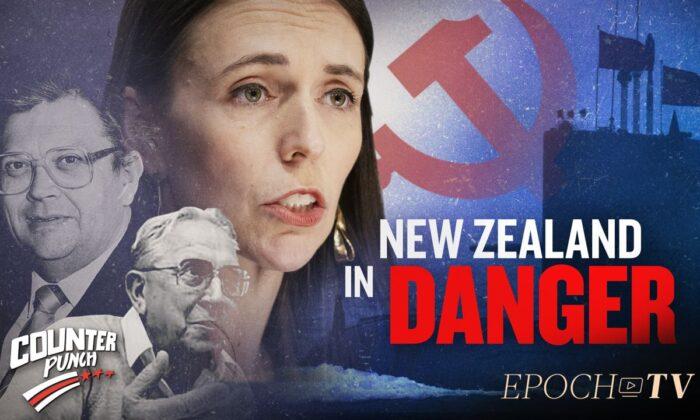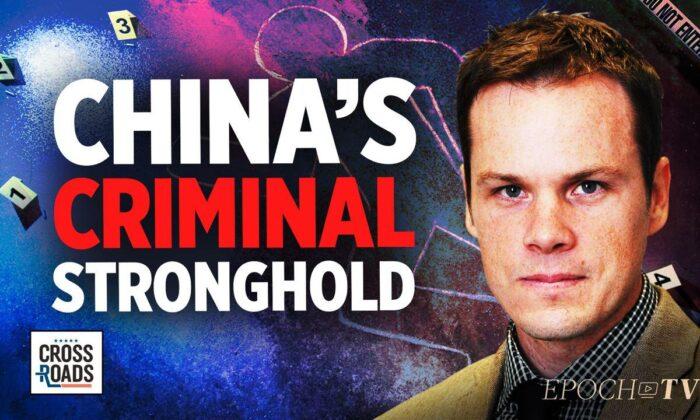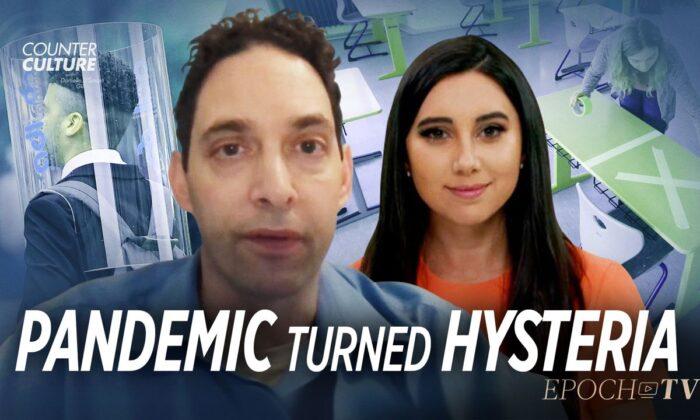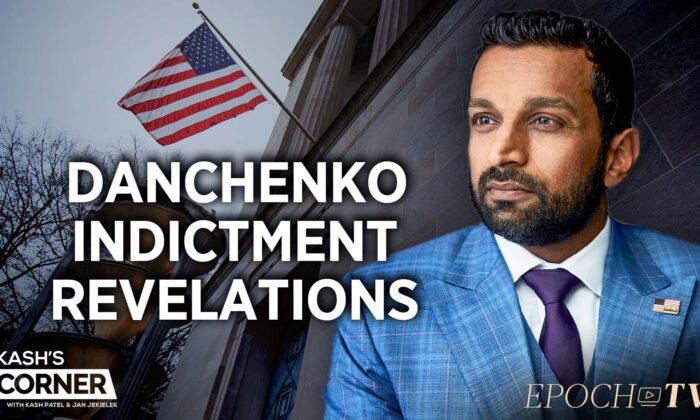There is something to be said for listening to members of older generations, no matter how much millennials and Generation Z may like to dismiss anyone over the age of 45 with the tired insult, “Okay, boomer.”
The thing about baby boomers and Generation X, who somehow get lumped in together as “old people,” is that they remember things the two younger generations currently screeching about equality and safe spaces have only—maybe—read about in history class. Even then, what appears in their history books is likely to be skewed, as history is written by the winners and the political left won the war on influencing education before the political center and many on the right ever realized there was a battle going on.
That’s why it would behoove millennials and zoomers to ask the old people about things like the collapse of the Soviet Union or the fall of the Berlin Wall. It was very different watching those moments unfold in real-time on the nightly news than it is to read about it in an ideologically driven classroom.
While for many people in the United States the only thing they know about New Zealand is the landscape, thanks to “The Lord of the Rings” and “The Hobbit” film trilogies, the machinations of New Zealand’s current government ring eerily similar to many of the insidious ways communism has infected Western politics and culture stateside. Because of this, you don’t have to be a Kiwi to find the episode interesting or to understand the wider ramifications of a denuclearized New Zealand.
It’s no secret that China is bent on retaking Taiwan and is currently threatening the entire South Pacific region, which is where Loudon opens this episode. With the danger of South Korea falling to either North Korea or China and growing concern in India, the Philippines, Japan, and Australia that the Chinese Communist Party (CCP) is going to start marching across the Pacific the way the Germans marched across Europe, New Zealand has left itself a sitting duck. As Loudon explains, Australia has started building nuclear submarines to deter the CCP but New Zealand’s prime minister, Jacinda Adern, won’t allow these subs to patrol New Zealand waters.
This is due to former Prime Minister David Lange banning ships carrying nuclear weapons or powered by nuclear energy from using New Zealand’s ports or passing through its waters. This ban was enshrined into law in 1987 through the New Zealand Nuclear Free Zone, Disarmament, and Arms Control Act—the only successful political movement in the world to totally denuclearize a country. Loudon highlights the folly of this in light of China’s increasing aggression, then begins a deep dive into the origins of the policy that is now putting New Zealand at considerable risk.
To explain the background of the 1984 ban and subsequent law, Loudon goes all the way back to the formation of ANZUS, an alliance formed by Australia, New Zealand, and the United States after World War II. The point of ANZUS was to curtail the spread of communism, particularly from the Soviet Union, and it was a successful alliance until Lange and the New Zealand Labour Party came into power in 1984. After nearly 40 years, the average New Zealander sees the Nuclear Free Zone Act as a positive achievement, the Kiwis standing up for themselves to keep America’s dirty warships out of their waters. Loudon has a different take, asserting it wasn’t New Zealanders growing a backbone as it was the creep of communism and socialism into the country. He has a long list of political figures from that time period with the many ways they were connected to the Soviet Union, as this kind of policy change is never as simple as one person’s election.
The politicians he lists won’t mean much to people outside of New Zealand and Australia, which doesn’t mean the viewer shouldn’t pay attention anyway. They are merely players in the overall saga Loudon tells about how and why the Soviet Union became interested in New Zealand in the first place, and how it courted members of the Labour party, many of whom were openly socialist.
It is earlier reminiscent of many other “Counterpunch” episodes where Loudon details exactly which politicians in the West have communist sympathies and to exactly whom those politicians are tied. New Zealand may seem like a strange country for the USSR to have cared about, but despite its small geographic area, New Zealand had an outsized voice on the world stage at the time this was all occurring. If the Soviets could get a foothold there via the Labour party and take over their foreign policy, they could broadcast their policies in a much more palatable way than anything coming out of Moscow.
What follows is an episode filled with history on the Labour party’s connections to socialism, the USSR’s efforts to dismantle NATO through the World Peace Council, and a story of a pair of drunk New Zealand politicians walking around Russia, one of them shoeless. It may not sound like anything of interest outside New Zealand where the political name-dropping won’t mean much, but it really is. Communists never really change their tactics, they just get better at hiding them, so to have Loudon walk the audience through the same tricks they’re using now from their schemes 40 years ago is a stark reminder of just how long and how persistently the West has been under threat, including our friends and allies who are actually in the East.
The CCP and post-Soviet Russia are both starting to pound their chests at their regional neighbors and were I a Kiwi, I’d be very worried about the Nuclear Free Zone Act and everything Loudon outlines.
Loudon worries, however, that his countrymen and women will brush off his story of communist infiltration and how in the modern era China could easily pick up where the Soviets left off, but it’s important when watching to remember this all started towards the end of the Cold War. Ronald Reagan and Margaret Thatcher get a cameo appearance, NATO had a prominent role in the reasons for the USSR setting its sights on New Zealand, and the Soviet Union had plans to invade Western Europe in advance of their ultimate goal of isolating the United States.
Despite what Bernie Sanders may like to tell college students these days, the USSR was not a nice place in the 1980s, and neither Reagan nor Thatcher were soulless ghouls interested only in crushing the poor through trickle-down economics (a myth, by the way). Loudon provides younger viewers with a master class in the real dangers of communism at the time and how communism continues to threaten New Zealand today, albeit in the form of an emboldened China while reminding older viewers of events they may have forgotten.
All told, this is a fascinating episode not only on the politics of New Zealand but on how consistent communists are in their tactics when it comes to finding ways to weaken their enemies from within. It is more than worth the 20 or so minutes of running time, and it allows the viewer to see a slightly more emotional side of Loudon as he discusses the possibility of his home country falling to the CCP without much more than a whimper. One can hardly blame him for taking the threat seriously given the stakes, and “How a Soviet Scam in the 1980s Left New Zealand Vulnerable to Communist China Today” should definitely be watched and shared far beyond Loudon’s native New Zealand.




